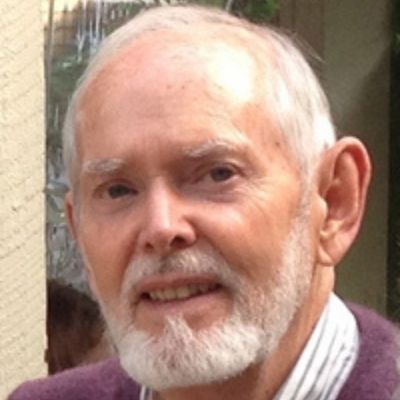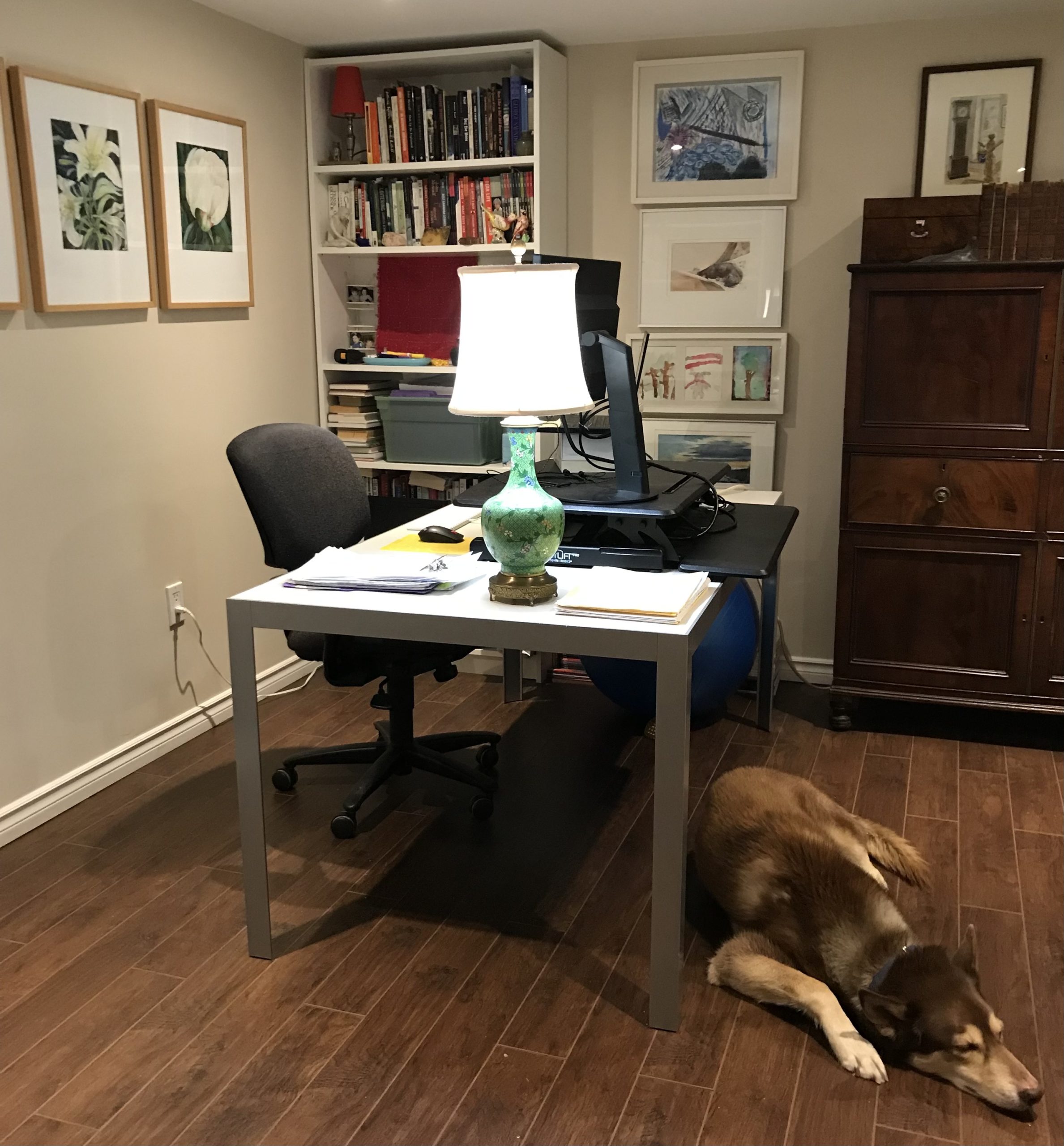One of our Consulting Editors, Barbara Carter, interviews Sandra Kasturi whose poem “Specializing in the Prehistory of Whales” won second prize in the 2021 Nick Blatchford Occasional Verse Contest.
Barbara Carter: Sandra, I am one of those who delights in the back story of poems. Would you indulge me and tell me about the backstory that prompted you to write this engaging narrative?
Sandra Kasturi: The poem came out of a conversation I had with my husband a few years ago. We were lying in bed and he was Googling himself, you know, as one does. He found entries on himself, but also found a couple of other guys with the same name. I think one was a lacrosse player and the other one, my husband told me, specialized in the prehistory of whales. Or at least, that’s what I thought he said. I was fascinated and asked, “What kind of whales? Blue whales? Humpback whales? Killer whales?” In fact, he’d actually said “prehistory of Wales,” the country. And I was terribly disappointed. I thought the prehistory of whales much more interesting. I mean, Wales is a wonderful place and I am a great lover of Welsh mythology and grim Welsh police dramas, but I was so fascinated by what the prehistory of whales actually was, I had to look it up. So some of the content is actually based in science, believe it or not! And that led to writing the poem and taking off into the land of the fantastical, from a somewhat empirical base. And that was the weird and very specific occasion that resulted in this poem. I found the whole exchange absolutely hilarious—I frequently misread things (which also leads to poetry), but this was the first time I’d misheard or misunderstood something that took me to a creative place. I’m amused by how our brains function and how our synapses (mis)fire, sometimes with wonderful results.
Barbara Carter: I am drawn to the voice in the poem. It is consistent, playful and clever addressing the whales as “You,” a knowing confident voice aware it seems of the nonchalant dominance of Nature over humanity. Does the title of the poem suggest the identity of the speaker? Who is the speaker in the poem? How did you choose the voice?
Sandra Kasturi: I suppose the speaker in the poem is me, or a version of me, though I’m not sure the title suggests it. So it’s my voice, giving free rein to my own loopiness. It’s my love letter to whales and nature and our own weirdness, and an acknowledgement of how small (and big) we are. Of course, whenever we write about nature these days, it seems to be about what an ecological disaster of a world we’re living in now, and how profoundly we’ve destroyed things. It was nice to write about finding joy in something for a change. I found the whole incident with mishearing what my husband said to be so funny—so I think I went into the poem in a very good mood and feeling gleeful. I whipped it off in one sitting, in maybe half an hour; it sprang out of my head full-grown, like Athena out of Zeus. That so rarely happens, and it’s such a gift when it does. I did make some editorial changes later on, with some suggestions and feedback from my poetry group, but the poem is still largely pretty much as written on the spot.
Barbara Carter: I love too the exuberance of language in this poem. The exuberance begins in the first verse: you whale-faced whales, . . . snuffling about the riverbeds of central Asia/ rooting in the mire of millennia . . . underlined by repetition of consonants—alliterations, the very sound of the words. This exuberance never stops. The personification of the whale in the second stanza to a medieval traveller is a charming tour de force: And you packed up your steamer trunks/and your charabancs, waterproofed/ your trousers and moved—/moved to a fully marine lifestyle/ a backstroke differential of being. What prompted you to use the word “charabancs”? It is marvellous for it places the reader in an entirely different world.
Sandra Kasturi: Thank you! Exuberance is the perfect descriptor—that’s exactly how I felt writing the poem: full of fizz. I have a great fondness for old-fashioned language and interesting or funny words. “Charabanc” is just such a great word! I can’t remember where I heard it first . . . probably in an Agatha Christie novel. And it seemed so wonderfully weird for whales to have luggage. I read a lot of science fiction and fantasy and horror, so there’s frequently an element of the fantastical in what I write. Of course, using archaic or unusual words can bite you in the ass too—throw a charabanc in the wrong place and it becomes this bright neon sign screaming at you, and then that’s all anyone notices. I think once the charabanc showed up, I figured I just had to keep getting more and more over the top and just go with whatever delightful insanity came next.
Barbara Carter: The diction is such a powerful aspect of your poem. The poem is an absolute joy to read aloud as the words tumble off the tongue urging the reader or listener forward to discover each step in the whales’ history. How conscious of word choice were you as you crafted this poem? How do you approach diction in your crafting of any poem?
Sandra Kasturi: Like I said, I wrote the thing in one sitting and it just poured out onto the page. It was very stream-of-consciousness and in-the-moment. So I wasn’t terribly conscious of making word choices. More often when I write these days, it’s such a grind and I’m pondering every syllable and every comma, and it’s so tiresome. With “Whales” I just enjoyed myself. And I am fond of things Victorian, so I think there’s a sort of Victorian-ness in the poem too. I’m sad I wasn’t able to work in “the vapours” or a chaise longue in there somewhere. Maybe for the next poem. “Prehistory of Whales 2: Electric Boogaloo.”
Barbara Carter: You commented to me that this is one of the few of your poems that you felt worked. What is it that you like about your poem? What convinced you that this poem worked?
Sandra Kasturi: I think the fact that I wrote the poem so fast, but was still pleased with it at the end was the first inkling. Normally I’m horrified and embarrassed by anything I write and it takes me a very long time to get to a place where I can grudgingly admit that maybe it’s not too bad. I felt like that about both of my poetry books, and it was only years after they were published that I was able to look at them objectively and see them as things that worked. I see the flaws still too, of course! That internal hand-wringing editor never quits. The other thing that made me think the poem worked was audience feedback. My poetry group liked the poem, and when I’d do readings, the audience always loved it. Got lots of laughs and applause, which is of course like catnip to writers. But I was beginning to doubt the poem—nobody wanted to buy it, and it was never published. I’d stopped sending it out, actually. And then when the TNQ contest deadline came up, I thought, well why not? I’d been in a very dark place for a long time, and that was a moment of optimism I had. I reread the poem and it made me feel good and I thought, “Oh, what the hell. I’ll give it a go.” So the lesson is (are you listening, children?), if you don’t try, you don’t get. Well, we all know this; it’s interesting how often we don’t follow through because of the same old self-defeating refrain.
Barbara Carter: I fully believed in the prehistoric whale that threw its teenage diaries/ in a fit of pique into the Marianas trench. Do you often engage in such flights of fantasy?
Sandra Kasturi: Ha! I probably do. Comes from reading a lot, I expect. Particularly genre fiction. I engage in a lot of what ifs. “What would happen if . . . ?” and “Wouldn’t it be hilarious and amazing if . . . ?” Genre writers always talk about that “sense of wonder” and these days we so rarely feel that. Everything’s an apocalyptic, nihilistic landscape. It’s exhausting. I mean, I enjoy a cripplingly devastating futuristic hellscape as much as the next person, but I’m not always looking to read something that makes me feel that grim. Sometimes you just want writing that fills you with a bit of pep. So maybe some of that sensibility and energy managed to seep through in the poem! Though it does end on a more serious note.
Barbara Carter: By the end of the poem, the reader too is awed by these creatures, these Zeppelins of the deep who give a great slow blink, tip of the hat/ to starlight and sunlight . . . to us, with our measured instruments/ small in our whale-shaped boats. Have you always had an affinity for whales?
Sandra Kasturi: I have always been fascinated by creatures who live a life completely alien from what we know. Sometimes that’s whales. Sometimes that’s dinosaurs. (Oh, how I love dinosaurs!) Sometimes that’s other human beings. I was probably heavily influenced by ’70s and ’80s movies like Jaws and its knock-offs. I so clearly remember a scene from Orca in which they showed a killer whale’s brain and compared it to a human brain, proving the whale had a more complex brain structure. Oh dear. Is all my scientific knowledge based on undersea predator films from over 40 years ago? Also, the ocean is full of deeply weird and horrible things. And sometimes delightful things! Like the white-spotted puffer fish, who makes these big geometric circles and patterns in the sand to entice a female fish. Isn’t that wonderful?
It might also be a question of scale . . . it’s so difficult to really comprehend how enormous whales are. Those diagrams with the outline of a diver next to the outline of a whale sort of show you, but you don’t feel it. I always wonder what whales are thinking. Or dreaming. There’s a wonderful scene in Lev Grossman’s book, The Magicians, in which the student magicians spend some time being whales—I love how he portrayed whales and what they are talking about in the deep ocean. Anthropomorphization writ large? So to speak? Ultimately, I guess there’s that childhood longing that never leaves us: the desire to communicate with animals, with “the other,” with the unknowable.
Sandra Kasturi has had work published in CNQ, Amazing Stories, Prarie Fire, CV2, among others. Her two poetry collections are: The Animal Bridgroom and Come Late to the Love of Birds.







